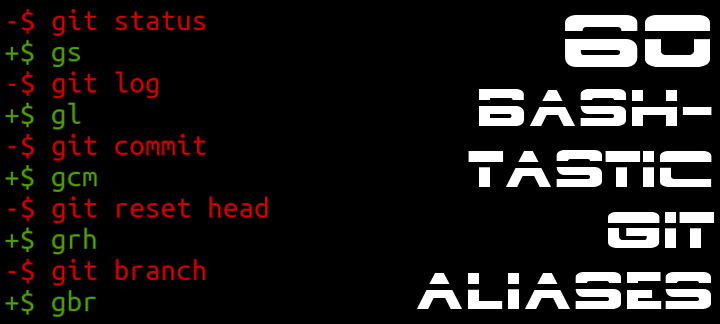Introducing the tco_method gem

Earlier this week I published a gem intended to help simplify the process of compiling Ruby code with tail call optimization enabled in MRI Ruby. The gem, tco_method, builds on my recent research into the internals of Ruby's implementation of tail call optimization and the ideas presented in Nithin Bekal's article Tail Optimization in Ruby.
The gem aims to ease the process of compiling select Ruby code with tail call optimization by providing a helper method, TCOMethod.tco_eval, for evaluating code with tail call optimization enabled and a mix-in, TCOMethod::Mixin, for adding annotations to Classes and/or Modules for annotating singleton or instance methods that should be compiled with tail call optimization enabled. You can see what each of these approaches would look like below.
TCOMethod.eval
TCOMethod.tco_eval(<<-CODE)
module MyFactorial
def self.factorial(n, acc = 1)
n <= 1 ? acc : factorial(n - 1, n * acc)
end
end
CODE
MyFactorial.factorial(10_000).to_s.length
# => 35660
Though not as powerful as Ruby's native eval method, TCOMethod.tco_eval provides easy access to the full power of Ruby with the added benefit of tail call optimization. The major downside to using tco_eval is that code must be provided as a String. Also, unlike Ruby's standard eval method, tco_eval currently cannot take a binding for the evaluation which can make it awkward at times to connect code that's being compiled with tail optimization to other application code compiled by Ruby's primary compilation process.
All that said, I view tco_eval as more of a starting point than a solution. It inches the door a little wider for the Ruby community to play with tail call optimization and get a better sense of how and when it might be useful. I think this is an exciting opportunity that Nithin Bekal's work with TCO method decorators began to explore and, as we'll see momentarily, the TCOMethod::Mixin continues to test the waters of.
Beyond the opportunity it offers the Ruby community, I'm also excited because the tco_method gem seems like a great opportunity to dig into Ruby's C extensions and see how extending the gem to interface with Ruby's C code more directly could extend the abilities of the gem while further simplifying access to tail call optimization in Ruby.
TCOMethod::Mixin#tco_method
class MyFibonacci
extend TCOMethod::Mixin
def fibonacci(index, back_one = 1, back_two = 0)
index < 1 ? back_two : fibonacci(index - 1, back_one + back_two, back_one)
end
tco_method :fibonacci
end
puts MyFibonacci.new.fibonacci(10_000).to_s.length
# => 2090
The TCOMethod::Mixin module provides annotations at the Class and Module level allowing a developer access to some of the niceties of tail call optimization, but without the awkwardness that comes from String literal code or heredocs. In the style of some of Ruby's other class annotations like private_class_method or module_function, the tco_module_method, tco_class_method, and eponymous tco_method* annotation for instance methods, allow a user to annotate a previously defined method indicating that the specified method should be recompiled with tail call optimization enabled.
Currently these helper methods are little more than nicely wrapped hacks that use some trickery to redefine the specified method with tail call optimization enabled. More specifically, the helper annotations will:
- find the method identified by the given argument
- retrieve the source for that method using the method_source gem
- generate a redefinition expression from the method source that reopens the defining Module or Class and redefines the method
- pass the generated redefinition expression to TCOMethod.tco_eval, effectively overriding the previously defined method with the new tail call optimized version
While this works in most situations, there are quite a few pitfalls and gotchas that come from this approach.
For one, this approach only works for methods defined using the def keyword. Though in some cases methods defined using define_method could be redefined correctly, given that define_method takes a block that maintains a closure with the definition context, there's no foolproof way to ensure that all methods defined using define_method could be reevaluated with tail call optimization enabled because of references to the closure context.
Another gotcha worth mentioning is that because the current implementation relies on reopening the parent Module or Class, the helper methods won't work on anonymous Classes or Modules because they cannot be reopened by name. With more hacking there are ways to get around this limitation, but, at present, I don't think more hacking is the path forward and something more along the lines of a C extension is the right way to address these issues.
Interesting problems
As I said before, I think the tco_method gem is a starting point, not a solution, and I'm excited by the various opportunities and challenges it presents. Though I am definitely interested in learning more about Ruby's C extension support, the tco_method gem has already presented some interesting problems despite its current primitive and hacky nature.
For example, in order to test that a recursive factorial method would no longer encounter a stack overflow after being recompiled with tail call optimization enabled, I first had to devise a means of ensuring that that method would have encountered a stack overflow without tail call optimization enabled and at what point that stack overflow would have occurred. To achieve this, I wrote a test helper that performs a binary search to discover how many stack frames a recursive function can allocate before a stack overflow is encountered.
Though my current solution could use some refactoring, I thought this was a fun and interesting problem to solve. Though I don't find binary search particularly interesting on its own, I found this particular case interesting because the expensive nature of the raise/rescue cycle in Ruby introduces a sort of penalty to the process such that the process will be much quicker if the point of overflow can be discovered while causing as few SystemStackError exceptions as possible. I think this detail makes the binary search more interesting because there's more to it than just finding the desired result in as few operations as possible, there are also other considerations to keep in mind that could totally change how the utility of the search is assessed. In fact, given this behavior, a binary search may not be the best approach at all.
For now, I've taken the approach of using one binary search to find a point of overflow, then using a second binary search to find the exact point at which the recursive function begins to exceed the system stack between the last successful invocation and the overflowing invocation.
I haven't tried to do much research on this particular type of problem yet, but I'm excited to revisit this search function at some point in the future and see what other ideas are out there for me to throw at the problem.
Update: After discussing the peculiarities of this approach with my coworker Matt Bittarelli, he suggested a couple of alternatives to the binary search approach that seemed intriguing and simpler. The first idea was simply to force a SystemStackError and check the length of the exception's backtrace from the rescue context to determine the maximum stack depth. Though this approach works in Ruby 2.2, it does not work in Ruby 2.0 or Ruby 2.1. The other idea Matt had was that maybe a SystemStackError wasn't necessary at all if a block could be used to monitor how the stack depth changed from iteration to iteration. Though a little mind bending, I was able to use a recursive method that yields to a block to monitor how the stack depth changes and using that information determine whether the method had been compiled with tail call optimization enabled. Though the means of determining if a method is compiled with tail call optimization has changed since I initially wrote this article, I think all three of the above approaches are interesting and I expect more interesting problems will emerge as work on this gem continues. Thanks again to Matt Bittarelli for his insights into the problem!
Test drive
Because tail recursive functions can typically be restated in other ways that don't require tail call optimization, I'm still on the fence as to whether TCO provides any real value other than expanding the expressiveness of the Ruby language. As such, I encourage you to take the tco_method gem for a test drive and explore the opportunities it presents. If you do take it for a test drive, drop me a line to let me know how it went. I'd be interested to hear about your experiences both with tail call optimization in Ruby-land and with the API offered by the tco_method gem.
Contributions are also always welcome!
View the tco_method gem on RubyGems
View the tco_method gem on GitHub
As always, thanks for reading!


